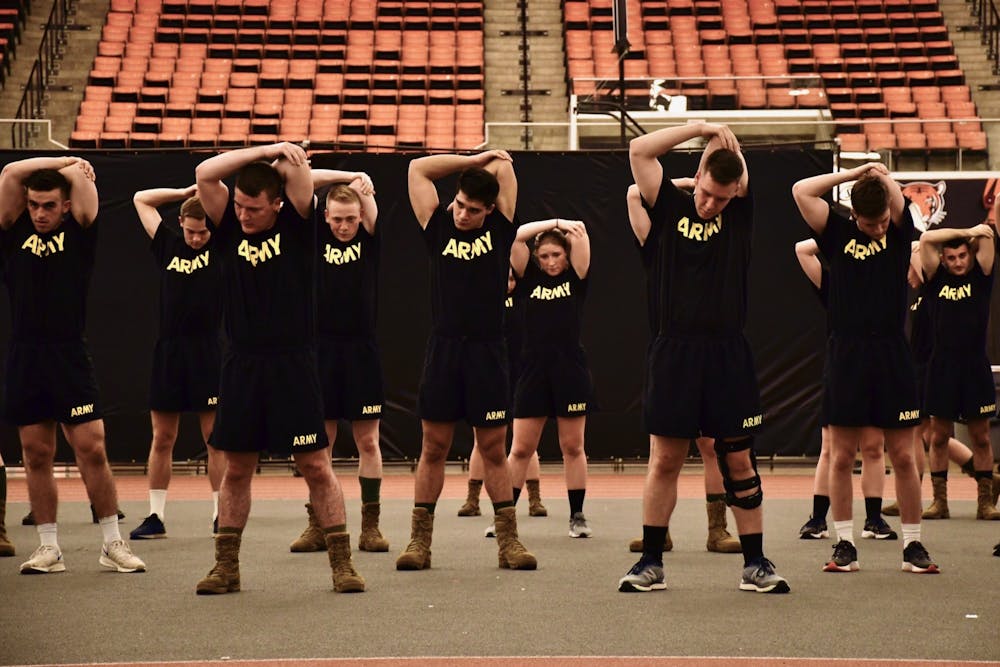In the 1970s, after the University reexamined its relationship with ROTC, it decided to get rid of credit for ROTC courses. Since then, Princeton has been one of the very few schools that do not offer credit to ROTC students. This accreditation problem has been revisited over the years, and nothing has changed. I write this column today asking for change to be made, not as a representative of ROTC, but as one of the many students in the ROTC program who have had to deal with this unfair policy.
We take eight ROTC classes over the course of our time at Princeton. We do not get a single credit for them.
Princeton ROTC cadets do the same work as every other ROTC cadet elsewhere in the country, but this policy puts them at a unique disadvantage compared to those other students. There is no good reason that Princeton cannot stay true to its motto, “In the nation’s service and in the service of humanity,” and integrate ROTC, as it has been elsewhere. At almost any other university, credits for ROTC courses count towards graduation requirements.
Implementing this change at Princeton would allow ROTC cadets to have more time to participate in the other opportunities available here. Few cadets are able to be as present in clubs and programs as other students, due to the program’s time commitment.
Accrediting ROTC classes means that cadets would gain an average of eight extra hours weekly, which cadets at almost all other universities now enjoy. Doing so would remove the impediment that Princeton unfairly places on its ROTC cadets: preventing them from competing equally with their peers in the job market, both currently and in the years to come.
All Princeton students find themselves swamped with work and responsibilities. For Army ROTC cadets, this workload is larger — equivalent to taking a fifth class. Three days a week, we wake up to be at physical training at 6:30 a.m. Once a week, we have a two-hour class, usually in the morning around the same time, and then we have a five-hour lab on Fridays. We also engage in various other weekly tasks and events. We do work and exams for these classes, like any other course.
In short, ROTC takes up a lot of time; this is especially true for cadets who are on the B.S.E. track and, therefore, taking five classes a semester, bringing their workload to six classes. Navy and Air Force ROTC cadets have an even larger burden, as they must go to Rutgers, often waking up at 4:30 a.m. to arrive in time.
These classes teach us leadership, military science, and public speaking, among other things. They are no different from other courses here. Regularly, the contract between the University and the Army is revalidated. The time has come for it to be updated again.

As such, I call on the administration and the faculty to accredit ROTC courses — to remove the vestiges of policy made in the aftermath of the Vietnam War, when the military was scorned. While it is true that anti-military sentiments still exist on campus, support for ROTC has increased since the 1970s, regardless of how students may feel about the military at large.
Princeton continues to send its students to important policy-making positions after graduation, and the military is no exception. Just look to the Chairman of the Joint Chiefs of Staff, General Mark Milley ’80. He is one of the many high-ranking officials representing Princeton. The University should want to send more of its students off to the nation’s service — the current course credit policy is acting against that goal.
Brent Kibbey is a junior in the Woodrow Wilson School from Portland, Tennessee. He can be reached at bkibbey@princeton.edu.









